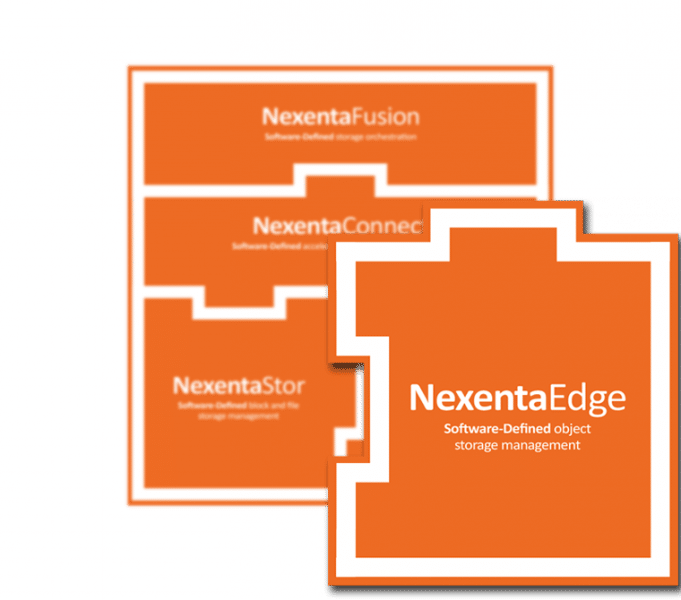![]() Today Nexenta announced its strategy to bring its Open Software Defined Storage to container-based cloud-native application deployments. Nexenta will be integrating its NexentaEdge Software-Defined Storage solution with container technology. Nexenta states it will embrace microservice architectures to provide a high performance, enterprise-grade storage foundation for could-native applications.
Today Nexenta announced its strategy to bring its Open Software Defined Storage to container-based cloud-native application deployments. Nexenta will be integrating its NexentaEdge Software-Defined Storage solution with container technology. Nexenta states it will embrace microservice architectures to provide a high performance, enterprise-grade storage foundation for could-native applications.
Today Nexenta announced its strategy to bring its Open Software Defined Storage to container-based cloud-native application deployments. Nexenta will be integrating its NexentaEdge Software-Defined Storage solution with container technology. Nexenta states it will embrace microservice architectures to provide a high performance, enterprise-grade storage foundation for cloud-native applications.

More and more companies are using container-based architecture to manage and deploy their applications. Containers enable developers to build cloud applications at scale. Companies need persistent storage solutions that integrate and support container deployments. Working with its partners, Nexenta aims to address the new requirements of containers with its open software-defined storage solutions (OpenSDS). Nexenta plans on enabling true software-defined container-converged infrastructure: scale-out server based infrastructure that concurrently runs NexentaEdge storage microservices and application microservices, providing high performance persistent storage services and simple container mobility.
Nexenta initiative to integrate with containers include:
- Joining the Open Container Initiative (OCI) and Cloud Native Computing Foundation (CNCF). Other members include: Apcera, AT&T, AWS, Cisco, ClusterHQ, CoreOS, Datera, Docker, EMC, Fujitsu, Google, Goldman Sachs, HP, Huawei, IBM, Intel, Joyent, Kismatic, Kyup, the Linux Foundation, Mesosphere, Microsoft, Midokura, Nutanix, Oracle, Pivotal, Polyverse, Rancher, Red Hat, Resin.io, Suse, Sysdig, Twitter, Verizon, VMware
- Integrating container technology into NexentaEdge, enabling NexentaEdge nodes to be deployed as microservices on any scale-out cluster of Linux servers, providing high performance block and object storage services with enterprise grade functionality (inline deduplication, inline compression, unlimited snapshots, clones, etc.)
- Enabling low latency data access between application microservices and NexentaEdge storage microservices running concurrently on the same server infrastructure, eliminating the overhead associated with traditional iSCSI block access methods and delivering true container-converged infrastructure
- Delivering unlimited container mobility across the entire cluster by leveraging NexentaEdge scale out architecture for any time, any server access to any container image or any application backend data
- Ensuring seamless integration and management of NexentaEdge storage microservices with Kubernetes
- Building ClusterHQ Flocker volume plug-ins for NexentaEdge and NexentaStor to support customers who prefer to keep compute and storage running on separate physical infrastructure
- Compatibility with Canonical’s Juju, Charms and LXD
Sign up for the StorageReview newsletter

